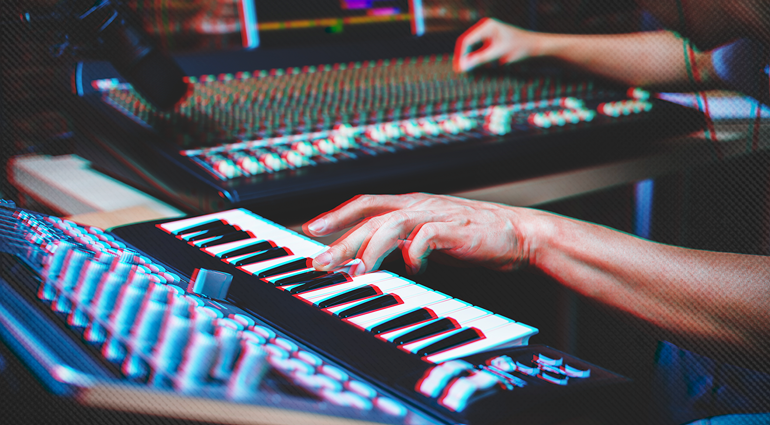
The art of remixing someone else’s song is one that dates back to the late-60s and remains a common practice in the music world, if not an increasingly popular and elaborate one. Many of us have probably heard several remix versions of songs before ever hearing the originals. In many cases, remixes reach much bigger audiences than their original versions. Why is that? Well, we have a few guesses below. If you disagree let us know in the comments!
First of all, what are the origins of remixing?
What once started in Jamaica in the 1960s has now grown into one of the biggest money-makers in the music industry. Basically, it started as a way of isolating the drum and bass tracks of ska, reggae and rocksteady songs, doubling (“dubbing”) them to make them beefier, extending the song’s length and then playing it in a club for people to dance to. This catered to the dance hall culture which was rampant in Jamaica in the late-1960s and, very soon after, toasters (now known as MCs) started singing (and eventually rapping) over these “dub” versions. This practice eventually made it to London and NYC after Jamaica’s independence in 1962 and has taken off in many directions in the past few decades (sampling being one of them). Now a remix is usually stripped down then often dressed up in various layers and sometime turned into a completely new composition with sometimes only the melody intact. Other times only a small portion of the melody remains while other elements (like the drum beat or riff) are instantly recognisable.

What types of remixes exist today?
Wow, this is a loaded question! The creative and free nature of remixes has allowed many genres, styles and, most importantly, cultures to be merged. This is a beautiful thing and bears much importance in today’s world which seems to be dividing in many places. The method of remixing, however can be narrowed down to a few general types:
The “official remix” is usually commissioned by the original artist or their label. The stems (individual tracks from the mix) are given to a remixer, who is paid a fee or is paid in royalties. A great example of this from the 2010s is Andy C‘s remix of Major Lazer‘s song “Get Free“. Check it out below and notice its 5:23 length, ideal for the dance floor.
You are currently viewing a placeholder content from Youtube. To access the actual content, click the button below. Please note that doing so will share data with third-party providers.
The “bootleg / unofficial remix” is usually done without permission but is sometimes embraced by the original artist if it generates hype and attracts more listeners.
The “mash-up” is the combination of an instrumental version with the vocal track of a different song which is sung in the same key. Below is a perfect example, and as a bonus, from different genres:
You are currently viewing a placeholder content from Youtube. To access the actual content, click the button below. Please note that doing so will share data with third-party providers.
The “radio / club edit” is either a shorter or longer edit of the song modified for different purposes or markets, usually done by the record label / original artist. If the original is five minutes long chances are that radio DJs won’t play it, so a 3-minute radio edit would be made for this purpose. For example, “I Remember” by Deadmau5 & Kaskade was shortened to 3:20 for radio because the original mix is 9:53.
You are currently viewing a placeholder content from Youtube. To access the actual content, click the button below. Please note that doing so will share data with third-party providers.
The re-edit is usually done by electronic DJs and musicians to re-create something different from a pre-existing stereo mix (no stems or separate tracks are used), either by removing a section, extending the length before a drop or re-arranging the existing parts.
What makes certain remixes more popular than the originals?
Longer, steadier & more danceable!
A lot of remixes, no matter what genre the original is categorised under, receive an “electronic face-lift“. The kick drum and bass are beefed up, the beat structure becomes more steady, repetitive and danceable and the new version often has a slower build up which makes its climax more intense. This has commercial appeal because it makes people want to dance, and when this applies to the club, dance hall or outdoor festival this means more earnings from entrance fees and drink sales.

Marshmello
Sponsorship / brand endorsement
When drink sales and ticket sales rise the attention of brands is piqued. Beverage companies or clothing brands often offer to sponsor certain clubs, events or DJs who spin remixes of famous Top 40s songs because they have the potential of drawing very large crowds. This is evident when you see the Highest Paid DJs of 2019 list from forbes.com and compare it to how many remixes you hear in the DJs sets. The Chainsmokers were number one this year with earnings of $46 million USD! Because of the large attendance numbers the shows can become huge, brand-endorsed, spectacles with top-notch lighting and pyrotechnics. This keeps people coming back. Thanks for the great business remixers!

David Guetta, sold out, as usual
Collective expression
Not unlike every art form these days, people want to hear and see content that is interactive, immersive or collaborative. The era of the passive art consumer is coming to an end. Now we all know that whatever song we hear, we can get involved by rethinking the song and creating something fresh out of it. This new era is transforming creative expression, which is traditionally thought of as personal, and bringing it into a collective dimension.

Change it up
The possibilities are endless
Remixers can take any song and make it what they want, this is the beauty of it, the freedom. Some people may say that this is cheating or stealing, but when a remixer gives credit and pays royalties to the original artist(s) it’s fair game. Also, not all remixes are given an “electronic face lift”. Take this song by Mick Jagger, remixed by Kevin Parker (of Tame Impala fame) as an example:
You are currently viewing a placeholder content from Youtube. To access the actual content, click the button below. Please note that doing so will share data with third-party providers.
What do you think of remixes? Which are your favourite ones? Have you made any? Let us know in the comments below or on the Facebook post!
You are currently viewing a placeholder content from Facebook. To access the actual content, click the button below. Please note that doing so will share data with third-party providers.
More InformationYou are currently viewing a placeholder content from Instagram. To access the actual content, click the button below. Please note that doing so will share data with third-party providers.
More InformationYou are currently viewing a placeholder content from X. To access the actual content, click the button below. Please note that doing so will share data with third-party providers.
More Information




